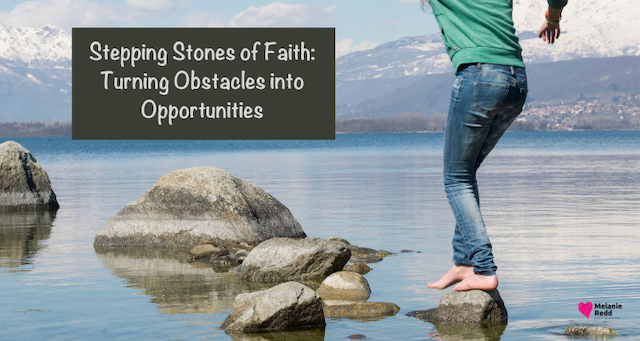A family foot-washing ceremony + Easter Bible reading plan
As an Amazon Associate I earn from qualifying purchases. This post may contain affiliate links. See my full disclosures, Terms of Use, and privacy policies on my "privacy" page. I never recommend a product I don't love.
The smell of little boy feet and soap suds mingled with giggles in my kitchen. I gently tugged off a sock, then placed one of their feet in the warm water that filled my roasting pan. He tugged his foot away, but I guided it gently back into the water.
I squirted soap on the cloth and rubbed the little sweaty foot, then towel dried each toe.
After being washed, each boy picked up the cloth and washed the feet of their mom or dad.
The activity was both silly and sweet, tangible and touching (with a touch of ticklish).

Why did we do this foot washing ceremony?
The idea for this ceremony comes from John 13:1-17.
In this passage, Jesus was celebrating an ancient festival with his disciples, called Passover. The Passover (or Seder) meal was the lynchpin in this feast, as it carried so many reminders of what God had done for his people when he rescued them from slavery in Egypt.
But before the meal, Jesus took off his outer clothing and wrapped a towel around his waist.
He poured water into a basin and began to wash the feet of his disciples.

If you’ve ever washed your feet (or your child’s feet) after playing outside in flip-flops all day, you may have an inkling of how dirty a job this was.
But not only was this job dirty, it was degrading.
Only servants washed feet. But when he was done, he spoke these words:
“Do you understand what I have done for you?” he asked them. “You call me ‘Teacher’ and ‘Lord,’ and rightly so, for that is what I am. Now that I, your Lord and Teacher, have washed your feet, you also should wash one another’s feet. I have set you an example that you should do as I have done for you. Very truly I tell you, no servant is greater than his master, nor is a messenger greater than the one who sent him. Now that you know these things, you will be blessed if you do them.
John 13:12-17, NIV
What he had done was meant to be an example of how his people were to treat others – with humility.
Washing someone’s feet and having them wash yours can change you for many reasons:
- It can start the healing process in a broken relationship. Can you imagine washing the feet of your spouse after they’ve hurt you, and them letting them wash yours? Powerful stuff. I have seen adult weep hot, salty tears during this ceremony as walls break down in their hearts.
- It strips the normal hierarchy from groups. Pastor and child, bully and bullied are alike when we wash each other’s feet.
- When our feet are being washed, we grow a little more trust as we vulnerably let our icky parts be touched and seen.
Really, isn’t that what Easter and the Kingdom of God are all about?
Are we literally supposed to wash everyone’s feet?
Probably not, no. Jesus often spoke on multiple levels.
One one level, he was saying “literally, wash each other’s feet as a sign of humility, like I have done for you.”
And on a deeper level, he was saying, “humble yourselves and live sacrificially, as I have done for you.”
But practicing this literal foot washing is a great training ground for learning to serve, and be served.
The first time I saw this done with children was when our associate pastor did this with a large group of kids. He wrapped a towel around his waist, poured a basin of water, and proceeded to choose a child. Most kids scooted their feet back, unwilling to be served in this way.
When a child finally accepted the offer, there was much nervous giggling around the room.

Why do they giggle, I wondered?
Was being served in such an intimate way SO uncomfortable that they couldn’t even handle watching? There was something so deeply moving about the object lesson that they found it easier to stay on the surface.
Afterward, the pastor talked to them about how they felt, and showed them that it felt uncomfortable because we weren’t used to such displays of humility – both from the foot-washer and the foot-washed.
What about adults? Should we do it too?
I have also experienced the foot washing ceremony with peers. Once it was at a youth camp when the tittering could be chalked up to youthful self-consciousness. But other times I did it with adults, and it was just as uncomfortable, maybe more. There may have been a few giggles in those groups as well.
Why was it so uncomfortable?
I think it’s because we don’t like being vulnerable. Often, as Christians, it’s easier to be the one doing the foot-washing than to have our feet washed. It’s hard to open ourselves up, with our warts (literally), fungus, and squidgy toes.

It’s humbling to wash someone’s feet, yes, but it’s almost MORE humbling in our culture to receive the foot-washing. Both are necessary, and help us develop humility.
Washing feet on Maundy Thursday
Maundy Thursday (the day before Good Friday) is the day that ancient Christian tradition has done this foot washing ceremony. Maundy comes from the latin word, mandatum, which means: commandment or mandate.
In the passage above, we see that Jesus commanded his followers to wash each others feet, following his example.
Maundy Thursday is the same day that Jewish people celebrate the Passover (Seder) meal. Do you see the connection?
So, let’s say you want to do this with kids. Here’s a simple lesson you can use on Maundy Thursday or at any point in your Easter celebration.
A “washing the disciples’ feet” lesson for kids
What you need:
- A Bible
- For younger kids, a copy of the Jesus Storybook Bible (find it on Amazon) or Easter Love Letters from God (find it on Amazon).
- Two towels (one for under the basin, and one to dry with)
- A basin or roasting pan (don’t have either? put the kids on the kitchen counter and use the sink!)
- Warm water
- Soap (optional)
- Read John 13:1-17. (**If you prefer, you can read pages 286-288 in the Jesus Storybook Bible or page 8 of Easter Love Letters from God.**)
- SAY: We’re going to do this, just as Jesus commanded.
- Wash each other’s feet, making sure that every person has a chance to wash and be washed.
- Afterward, ASK:
- What were you thinking while you washed his/her feet?
- How did you feel?
- Why do you think you thought/felt that way?
- What were you thinking while having your feet washed?
- How did you feel?
- Why do you think you thought/felt that way?
- How does it make you feel that Jesus would wash our dirty feet?
- Why do you think Jesus wants us to do this?
5. After the end, share this beautiful love letter from God:
Dear _________,
Did you know that the disciples did what Jesus asked that? They never forgot how Jesus washed their feet that night. They never forgot how much Jesus loved them. So they took that love into the world. And you can do the same. Never forget how much Jesus loves you. Show that love to others. If you do that, everyone will know that you are one of his disciples.
love, God
(Taken from Easter Love Letters From God by Glenys Nellist Copyright © 2018 by Glenys Nellist. Used by permission of Zondervan. www.zondervan.com.)

A “Jesus Storybook Bible” Easter Reading Plan
We originally tried this foot washing ceremony as part of our 10-day journey. We used the Jesus Storybook Bible to slowly ingest the Easter story. The entire plan is down below.
NOTE: I didn’t discover the Love Letters version until several years later, but it’s also gorgeous. The author has some details in this post about how to receive her 7-day devotional.
Download your printable copy of the reading plan and discussion guide here or read through it below.
Day 1: Jesus washes his friends’ feet.
Read John 13:3–9, 14–15 (pages 286–288 in JSB).
Now, do as Jesus commands and wash your child’s feet—in a tub, a sink, or just with wet cloths. Allow your child to wash your feet as well. SAY: How did you feel when you washed my feet? How does it make you feel that Jesus would wash our dirty feet? Why do you think Jesus wants us to do this?
Day 2: The Last Supper.
Read Mark 14:22–24 (pages 291–292 in JSB).
SAY: Did you know that Jesus came to rescue us? Do you know why we need to be rescued? We need rescuing because we do bad things, called sin, and those bad things keep us from God. Jesus wants to rescue us from our sin—to forgive us and to help us change. Think of one or two things today for which you need forgiveness and ask Jesus to rescue you from that sin.
Day 3: Jesus prays in the garden.
Read Mark 14:32–42 (pages 294–298 in JSB).
SAY: Jesus was very sad, because he knew that all of our badness was going to go into his heart. How does it make you feel that all the badness in your heart had to go into Jesus’ heart? That because of the bad things you and I have done, Jesus had to be punished? Do you think that’s fair? I don’t think that’s fair. But because Jesus loves us so much, that’s what he chose to do. Let’s thank him right now for being so wonderful to us!
Day 4: Jesus is arrested.
Read Mark 14:43–50 (pages 299–300 in JSB).
SAY: Why did Peter slice off the man’s ear? (Because he was afraid, and he was trying to protect Jesus.) What would you have done if someone came to arrest your best friend? Even though Jesus could have stopped them from arresting him, he didn’t. Why not?
Day 5: Jesus’ trial.
Read Mark 14:53–64 (page 301 in JSB).
SAY: Do you think Jesus was afraid to die? Can you think of a reason why the leaders would hate Jesus so much? (They were afraid of him and the Romans, they didn’t like people who were different, they were jealous…) It’s a terrible thing that these leaders hated Jesus. Yet God used them in his great rescue plan. Jesus had to die, and he used these mean and jealous leaders to make his plan work. But Jesus didn’t hate the leaders back. He wants us to love people who hurt us. Let’s pray that we would be able to love those who make us feel bad.
Day 6: Jesus is crucified.
Read Mark 15:25–34 (pages 302–304 in JSB).
SAY: Do you know why Jesus stayed on that cross? It was love. Who does Jesus love? He loves YOU. _______ (name), Jesus loves YOU so much that he chose to take the punishment for the wrong things YOU’VE done. How does that make yo
u feel? Would you like to say something to Jesus?
Day 7: Jesus dies and is buried.
Read Mark 15:37–46 (pages 306–308 in JSB).
SAY: How do you think Jesus’ friends felt as they buried his body in the tomb? How would you feel if your best friend died? I think they were probably terribly sad. But did you know that the story doesn’t end here? Jesus had to die to take the punishment for our sin, but he also had another thing he had to do!
Day 8: Jesus’ body is gone.
Read Mark 16:1–8 (pages 310–312 in JSB).
SAY: Wow, wasn’t that a surprise?! How would you feel if you saw a huge, shiny angel? What did you think of the angel’s news? Do you think you would have believed him if you had been one of those women?
Day 9: Jesus talks to Mary.
Read John 20:11–18 (pages 314–317 in JSB).
SAY: What sad things had God made better? Mary was so excited to see Jesus, because she had thought he was going to be dead forever. But Jesus is God’s Son and he couldn’t stay dead—he had to come back to life so that death could come untrue, so that all the people who love him can eventually came back to life too. Do you or I know anyone who has died that someday will come back to life? How do you think we will feel when we see them? Will we feel like Mary did—excited and joyful and a little bit scared?
Day 10: Jesus appears to his friends.
Read Luke 24:36–43 (pages 318–321 in JSB).
SAY: Touch me. Am I real? Jesus’ friends thought he wasn’t really there, but when they touched him, they felt that he was just as real as you or me. But the Bible tells us that Jesus’ body was not only real, it was better than real—it could never get sick or hurt or die ever again. The great news is that someday Jesus will give us bodies just like that too! How do you feel about that? Let’s thank God for his amazing rescue plan!




